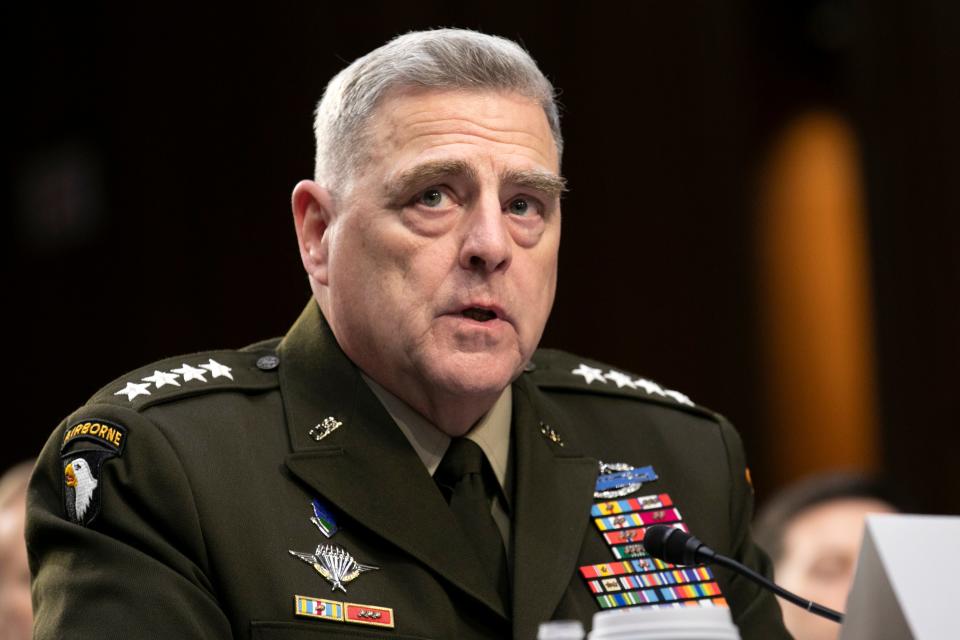Despite troop withdrawals, Pentagon points to deployments' impact on climbing suicide numbers
WASHINGTON – Army Gen. Mark Milley, the chairman of the Joint Chiefs of Staff, testified Wednesday that the pace of training and deployments has affected the rate of suicide among troops.
The demand for troops to train and serve combat tours overseas has remained high even as forces are withdrawing from the Middle East, Milley said. That's because the overall number of troops has remained stable or declined slightly in recent years, while infantry and special operations forces continually are called for hazardous duty.
In 2018, 326 active-duty troops died by suicide. That number increased to 348 in 2019 and 377 in 2020, according to Pentagon figures.

"It's a big concern," Milley said in testimony before the House Armed Services Committee. Operational tempo, Milley said, impacts troops in a variety of ways, including suicide.
Milley made his remarks in response to questions from Rep. Jackie Speier, D-Calif., who chairs the committee's panel on personnel issues. Speier cited the spike in suicides this year among soldiers in Alaska, a "heart-wrenching" problem Army officials acknowledged earlier this month. Out of fewer than 12,000 soldiers stationed in Alaska, at least six have died by suicide this year, according to the Army, a rate greatly outpacing civilian statistics.
One of those soldiers was a young woman who was sexually assaulted after coming out as a lesbian on Facebook, according to her mother. She died by suicide in May, days after an encounter with her alleged attacker who, despite a no-contact order, had been assigned to the same building for a training exercise.
Speier told Milley and Defense Secretary Lloyd Austin that she found the suicides in Alaska "deeply troubling" and called on them to stand up a commission to study the problem.
The wife of a soldier told Speier that the stress of her husband's service caused her to worry daily that she'd come home to find him hanging in the shower, she said.
The Army, alarmed in recent years about a cluster of suicides at Fort Wainwright in Fairbanks, Alaska, spent more than $200 million to improve barracks and other facilities, bolster counseling and improve the quality of life for soldiers stationed there.
Service members and veterans who are in crisis or having thoughts of suicide and those who know a service member or veteran in crisis can call the Military Crisis Line/Veterans Crisis Line for confidential support 24 hours a day, seven days a week, 365 days a year. Call 1-800-273-8255 and Press 1 or text 838255 or chat online at VeteransCrisisLine.net/Chat.
This article originally appeared on USA TODAY: Suicide in the military increases, raising alarm in Congress

 Yahoo Movies
Yahoo Movies 
